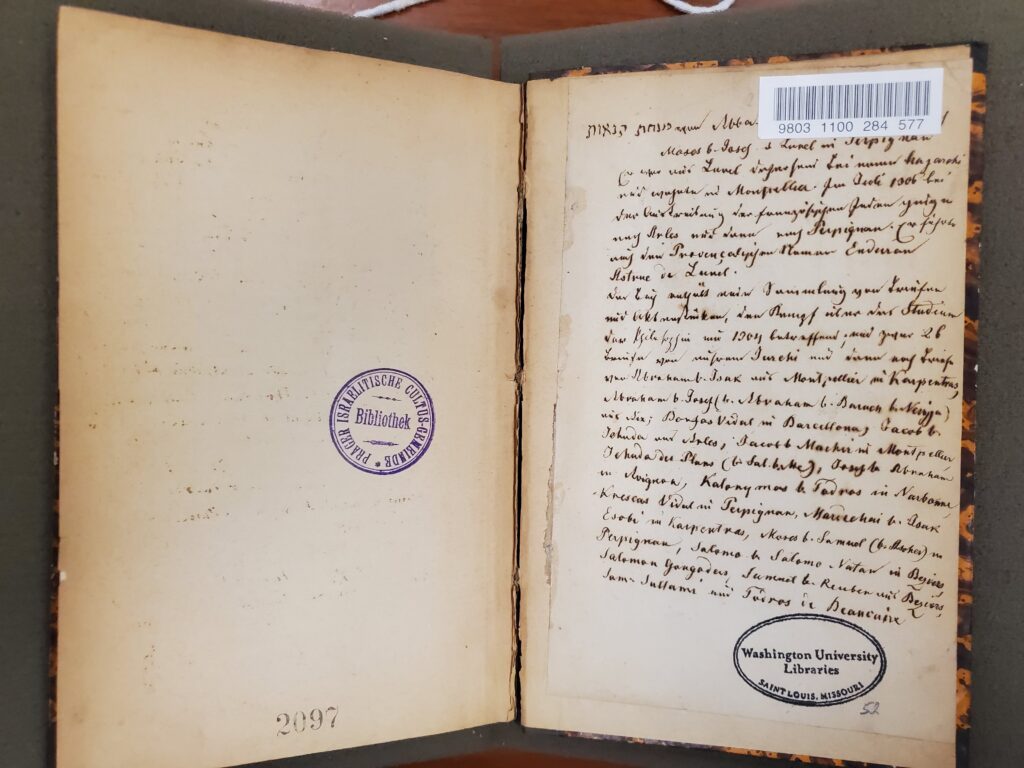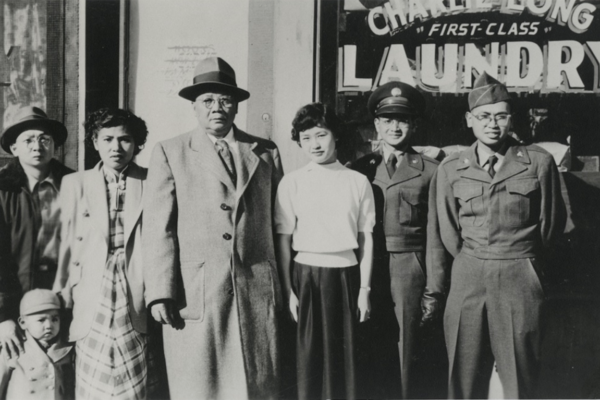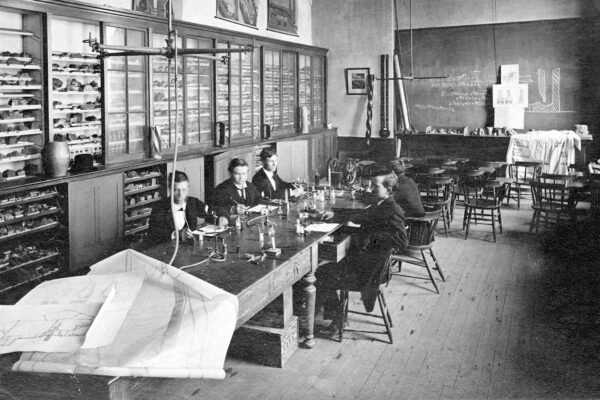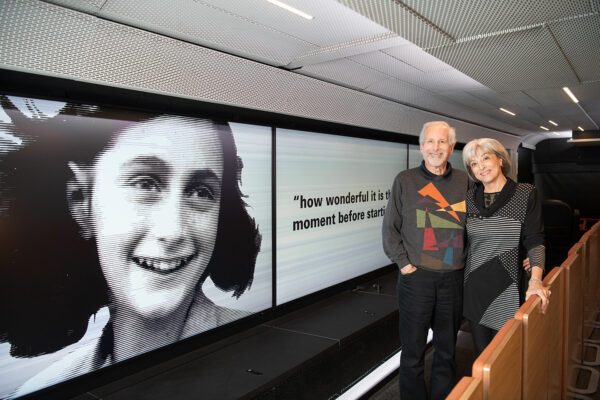In February 1972, more than 100 cartons of books made a cross-country journey from Los Angeles to St. Louis. Washington University paid $30,000 for the thousands of volumes that would comprise the bulk of the Shimeon Brisman Collection in Jewish Studies, a huge grouping of religious texts and rabbinical commentaries that included Brisman’s personal rare book collection as well as titles purchased from UCLA in the same era.
For decades, WashU librarians didn’t realize that tucked among the Brisman Collection were 30 volumes that bore a stamp revealing a longer, and more disturbing, journey. Thirty years before the books’ arrival in St. Louis, Nazis had forcefully taken the texts from a library in Prague to the ghetto-concentration camp in Terezín (Theresienstadt). After World War II, some books made an additional stop at Bamberger and Wahrmann, a Jewish bookstore in Jerusalem, before being purchased by UCLA and then WashU.
The books’ journey finally concluded last August, when WashU successfully repatriated the volumes to their rightful owner: the library of the Jewish Museum in Prague. In doing so, the university created a template for returning stolen property — joining cultural institutions around the world that in recent years have confronted tragic legacies within their own collections.
Uncovering a mystery in the stacks
The truth about the Brisman Collection books began to come to light in 2021, when Cassie Brand, the current curator of rare books at WashU, received an email from Ivan Kohout, the curator of rare documents at the Library of the Jewish Museum in Prague. A meticulous cataloguing effort at WashU in the 1990s documented the existence of stamps in the books, providing Kohout a clue that they may have previously belonged to the Library of the Jewish Religious Community in Prague, which was later re-founded as the Jewish Museum.

After Brand sent photos of the stamps and both institutions confirmed the marks’ origin, Kohout wrote again. “He began talking about repatriation, with a promise not to sue us,” Brand says. “It was a better way than coffee to wake up in the morning.”
Brand then brought in senior leadership at the library, who quickly concluded that the books should be returned. “I’m very pleased to work in an institution with people who agree that the right thing to do is give these back,” Brand says.
The returned volumes were among millions of books and Jewish cultural objects systematically confiscated by Nazis during World War II, says Anika Walke, the Georgie W. Lewis Career Development Professor and associate professor of history in Arts & Sciences.
“One of the first things they often did in the occupied territories was to literally seize whole collections in Jewish libraries and all the holdings of Jewish cultural institutions,” Walke says.
The effort was part of a broader plan. The Nazi regime aimed to build research institutions dedicated to the so-called “Jewish question,” enabling the study of Jewish artifacts from the Nazi perspective to prove Jewish racial inferiority.
A persistent myth claims that the Jewish Museum in Prague itself was created as part of this twisted plot, says Hillel Kieval, the Gloria M. Goldstein Professor of Jewish History and Thought in Arts & Sciences. In reality, the Jewish Museum had already been in existence since the early 20th century, and the Nazis were defeated before they were able to create the desired “research” institutions.
Given this dark history, the repatriation of Jewish books and other cultural objects should be considered part of the larger effort of repair for the Holocaust, even after most survivors are deceased, says Walke. Alongside mass murder, the deliberate destruction and dispersal of Jewish property marked a branch of the Nazi’s genocidal effort.
“Why is this important? Why do they need books and artwork back?” Walke asks. “One of the reasons is, of course, that this is theft, and it was part of a systematic effort to destroy the Jewish people and to eliminate Jewish cultural and religious heritage. So, reclamation is addressing injustice.
“If we’re thinking specifically about book collections that, in many cases, act as a record of Jewish history or Jewish culture, it is also about reclaiming an identity and reconstructing that identity,” she says.
Recognizing this value, WashU librarians used the Brisman Collection case to create a smooth path forward for future repatriation. The memo of understanding with the Jewish Museum in Prague lays out plans for returning any additional stolen books discovered in the future. The Jewish Museum also agreed to digitize the books, ensuring continued access for WashU researchers.
The detailed work paid off almost immediately. One month after the Jewish books’ safe arrival in Prague, a second repatriation claim — relating to a book stolen in the 1970s — arrived from a library in Switzerland. In November 2022, Brand traveled to Washington, D.C., and hand-delivered the book to Jacques Pitteloud, the Swiss ambassador. From there, the book journeyed home.


